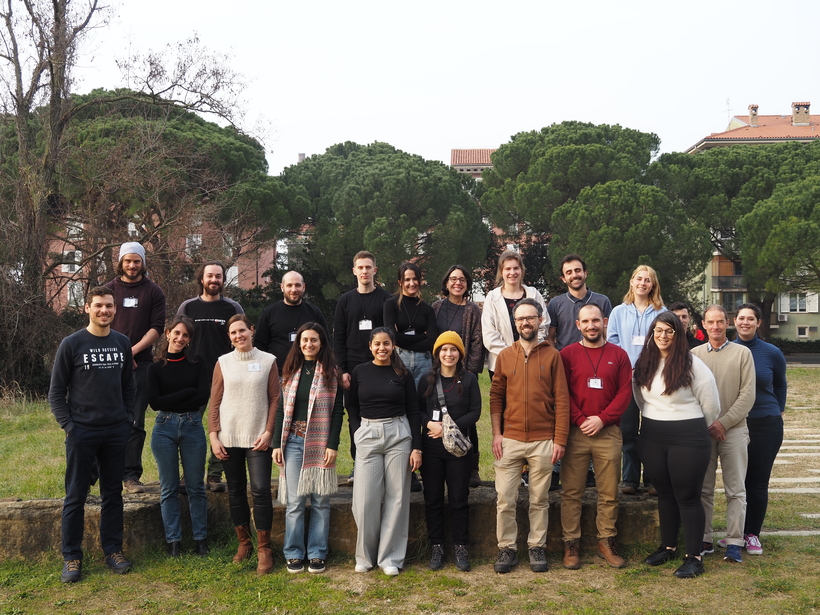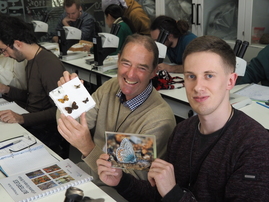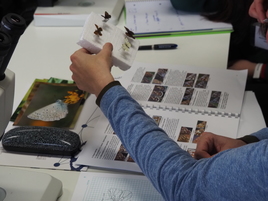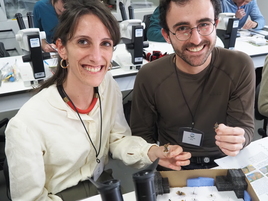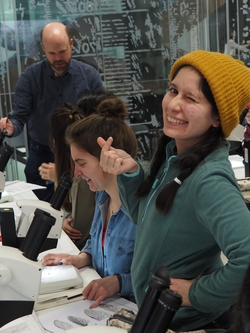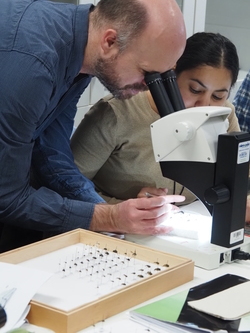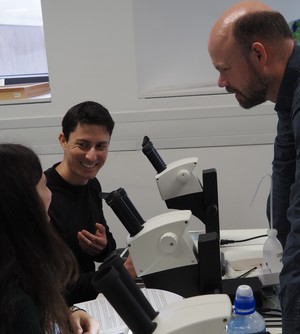Introductory training school on pollinator identification
print
Pollinators provide one of the most important ecosystem services on the planet – pollination. By doing so, they make food production possible, protect and maintain ecosystems and species, and contribute to genetic and biotic diversity. They often act as indicators of the state of the environment, and their presence, absence, or quantity can indicate environmental change, informing us on appropriate conservation action, if needed. Pollinators are declining at a high rate all around Europe, due to habitat fragmentation, pesticide use, climate change and other factors, hence their monitoring and conservation is of high priority.
This training school is designed for 15 Early Career Researchers (including MSc and PhD students) and Conservation Practitioners interested in pollinator taxonomy, biology, ecology and identification. The focus of this course will be teaching importance of pollinators, targeting groups like butterflies, hoverflies and bees and their biology, ecology, monitoring methods, conservation, preparation of specimens, identification, etc.
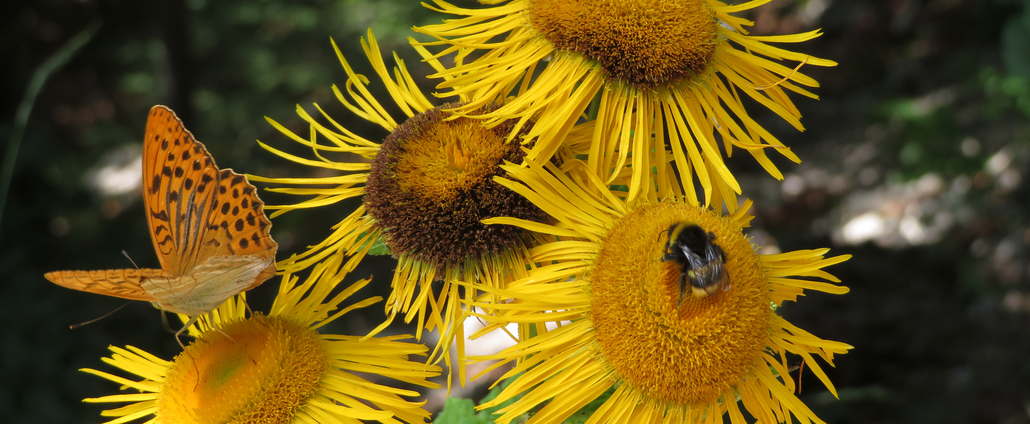
Location: University of Primorska, Faculty of Mathematics, Natural Sciences and Information Technologies, Izola, Slovenia
Trainers: Marco Bonifacino (Italy), Maarten de Groot (Slovenia), Simone Flaminio (Italy), Hugo Gaspar (Portugal)
Date: Wednesday, 15 February 2023 - Friday, 17 February 2023
Lectures are open to a wide public and can be accessed through the following ZOOM link:
https://upr-si.zoom.us/j/84058892779?pwd=ZFp6eURXK0ZkaElKYWsrdGN4ZDFodz09
(Meeting ID: 840 5889 2779; Password: 385200)
SHORT AGENDA OF THE TRAINING SCHOOL (agenda might be subject to minor changes)
Day 1
Morning (9.00-12.00 CET): Introduction
Lecture 1: Pollinators: importance, main groups, conservation status and monitoring methods (Hugo Gaspar)
Lecture 2: Introduction for butterflies (Marco Bonifacino)
Afternoon: Practical part: Identification of butterflies and demonstration of the preparation of specimens
Day 2
Morning (9.00-12.00 CET): Lecture 3: Introduction for bees: Biology, Ecology and Taxonomy (Simone Flaminio, Hugo Gaspar)
Lecture 4: Introduction to bees. Part 2. (Andrej Gogala)
Afternoon: Practical part: identification of bees
Day 3
Morning (9.00-12.00 CET): Lecture 5: Introduction to hoverflies (Maarten de Groot)
Afternoon: Practical part: Identification of hoverflies to tribe/genus level
Final discussion (Hugo Gaspar)
Training school materials:
